
-
Find the right food for your petTake this quiz to see which food may be the best for your furry friend.Find the right food for your petTake this quiz to see which food may be the best for your furry friend.Featured products
 Puppy Food
Puppy FoodHill's Science Plan Puppy Multipack Wet Dog Food with Chicken & Beef are complete premium pet foods for growing puppies from weaning until 1 year old and for pregnant and nursing dogs. Your puppy will love these deliciously smooth and savoury minced loaves, formulated for balanced nutrition and overall health.
Shop Now Adult Wet Dog Food with Beef
Adult Wet Dog Food with BeefHill's Science Plan Adult Multipack Wet Dog Food with Chicken, Beef & Turkey are complete premium pet foods for adult dogs from 1 year. Your dog will love these deliciously smooth and savoury minced loaves, formulated for balanced nutrition and overall health.
Shop Now Mature Adult Dog Food
Mature Adult Dog FoodHill's Science Plan Mature Adult Multipack Wet Dog Food with Chicken & Beef are complete premium pet foods for mature adult dogs from 7 years. Your dog will love these deliciously smooth and savoury minced loaves, formulated to deliver the appropriate amount of energy to support the needs of adult dogs.
Shop NowFeatured products Mature Adult Wet Cat Food with Chicken
Mature Adult Wet Cat Food with Chicken
Tender chicken chunks in gravy for mature adult cats. Made with easy-to-digest ingredients, high-quality protein for lean muscle maintenance and antioxidant vitamins C+E for optimal health.
Shop Now Adult Multipack Wet Cat Food with Beef, Ocean Fish & Chicken
Adult Multipack Wet Cat Food with Beef, Ocean Fish & ChickenTender chunks in gravy for cats, with high-quality protein to maintain lean muscle. With vitamin E and omega-3s & -6s for healthy skin and balanced minerals to support healthy vital organs.
Shop Now Light Adult Multipack Wet Cat Food with Chicken & Ocean Fish
Light Adult Multipack Wet Cat Food with Chicken & Ocean FishTender chicken chunks in gravy for cats, with L-carnitine and fewer calories for ideal weight management. Packed with high-quality protein, omega-6s, and vitamin E for shiny fur and healthy skin.
Shop Now -
Dog
- Dog Tips & Articles
-
Health Category
- Weight
- Food & Environmental Sensitivities
- Urinary
- Digestive
- Joint
- Kidney
-
Life Stage
- Puppy Nutrition
- Adult Nutrition
- Senior Nutrition
Cat- Cat Tips & Articles
-
Health Category
- Weight
- Skin & Food Sensitivities
- Urinary
- Digestive
- Kidney
-
Life Stage
- Kitten Nutrition
- Adult Nutrition
Featured articles The Right Diet For Your Pet
The Right Diet For Your PetIn people, the right diet is very important. If you are eating the wrong way for your metabolism, activity level, age and lifestyle you could end up with health issues.
Read More The Incredible Science Behind Your Pet's Microbiome
The Incredible Science Behind Your Pet's MicrobiomeLearn what your pet's microbiome is, how it contributes to your pet's gut and overall health, and why nutrition is important in maintaining healthy microbiomes.
Read More Show some love with wet foods: a great choice for pets with health issues
Show some love with wet foods: a great choice for pets with health issuesShow some love with wet foods: a great choice for pets with health issues.
Read More -


If your cat's veterinarian has told you that your kitty is heavier than they should be, you're not alone. International Cat Care says that 39 to 52 percent of U.K. cats are overweight. And it's not just a problem for British cats: approximately 60 percent of cats in the U.S. were classified as overweight in 2018, according to the Association for Pet Obesity Prevention.
But how do you help a cat lose weight? The key is a combination of proper nutrition and exercise. Follow these steps during your journey to help your cat lose weight.
Is My Cat Overweight?
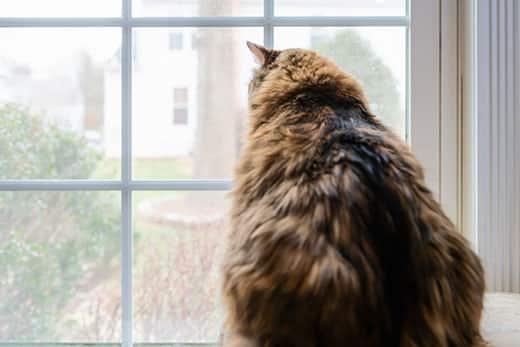
If you’re not sure whether your cat is overweight, there’s a simple way to evaluate their size at home - no scale needed! The World Small Animal Veterinary Association recommends using the Body Condition Scoring System to help assess your cat. There are three simple steps to figure out where your cat is on this 1-9 scale (5 is ideal).
- Run both hands, palms down, along both sides of your cat's rib cage and down to their hips.
- Look at your kitty from the side to get a good view of their profile.
- Look at your kitty from above to view their waist.
If you can't feel your cat's ribs or see their waistline, then your cat is probably overweight. To confirm if your cat is overweight and to discover their ideal weight, bring them to the vet for an overall wellness check and to rule out any underlying reasons for their weight gain.
How to Help a Cat Lose Weight
Once you know that your cat is overweight, it's up to you, together with your kitty's vet, to create a nutrition and exercise plan for your pet. A good mantra to guide your cat's weight loss plan is: "Eat well, play more."


Tasty Tips
Choosing the Right Food for Weight Loss
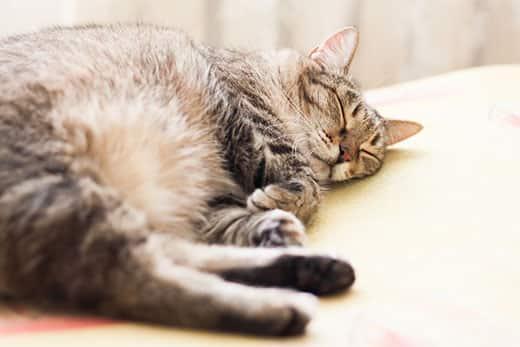
Nutrition plays an important role in weight loss, but before changing up your cat's meal plan — and especially before cutting down the amount of food you feed them — you should consult a vet to avoid creating potential health issues. Cats Protection warns that you should never starve your cat or put them on a “crash diet”. These aren’t good for anybody, but they can cause serious liver problems in cats. While this is a worst-case scenario, any change to your cat's meal plan will affect their health, so be sure to work closely with your vet if you want to adjust their food.
While you can find “light” or “weight management” foods at your local pet shop, it is always important to check in with your veterinarian to see if these foods are appropriate for your cat. If your cat has a lot of weight to lose, your vet may recommend a dietetic food that is specially formulated to help get your cat to a healthy weight. These foods tend to have high fibre and fewer calories per cup than other foods. They are also formulated to provide enough protein, vitamins and minerals to ensure that your cat can lose weight safely, even though they’re eating fewer calories each day.
Finally, if you're into spoiling your cat with treats or table scraps, the best way to improve their health is to reduce or omit feeding them these unnecessary calories. While you might think that your cat will hate you, they will be just as content with getting extra cuddles and playtime with you.
How Exercise & Fitness Can Help
Nutritious food is just one part of weight loss. Cats are typically sedentary creatures, but during the hours your kitty is awake, get them moving! Think of yourself as your cat's personal trainer. Toss around a small toy that they can chase, or build a DIY cat scratching post. Even a ball of screwed-up paper will entertain your little hunter. Mix up activities to keep them interested.
Want to combine exercise with your cat's feeding time? Consider getting a puzzle feeding box. These special dishes require your cat to work to get their food out, helping them burn those extra calories.
Preventing Your Cat From Piling on Pounds
On average, a healthy rate of weight loss for your cat is one-half to two percent of body weight per week. The PDSA says that while food packaging will provide a guide for how much food to serve your cat, their actual daily calorie needs can vary according to their size, age, and health. And for weight loss, they add that you should feed your cat based on their target weight, rather than their current weight. If you’re at all unsure about how much food your cat needs to lose weight healthily, it’s best to ask your veterinarian for their professional advice.
Establishing a regular feeding schedule is also key to help your cat keep off the weight. Some cats are happy with one or two meals a day, while others prefer smaller, more frequent meals. Observe their eating habits to determine the best meal practices for your cat to help get them to their optimal weight. Your kitty may not be happy with these changes at first, but they'll appreciate it in the long run. After all, staying at a healthy weight allows them to move and play more, and enjoy an overall better quality of life.


One of our staff authors prepared this article for you
Related products

Tender chicken chunks in gravy for cats, with L-carnitine and fewer calories for ideal weight management. Packed with high-quality protein, omega-6s, and vitamin E for shiny fur and healthy skin.

Tender chunks in gravy for cats, with high-quality protein to maintain lean muscle. With vitamin E and omega-3s & -6s for healthy skin and balanced minerals to support healthy vital organs.

Tender chicken chunks in gravy for mature adult cats. Made with easy-to-digest ingredients, high-quality protein for lean muscle maintenance and antioxidant vitamins C+E for optimal health.
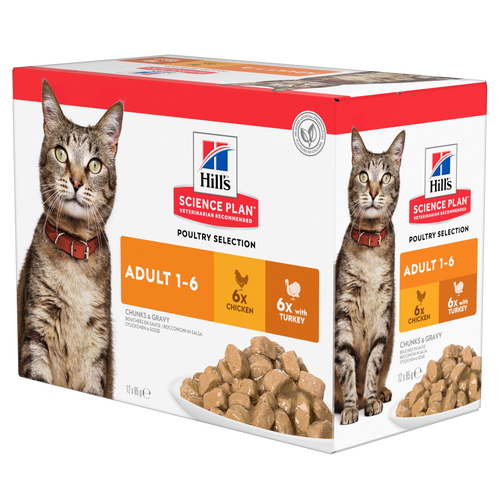
Related articles
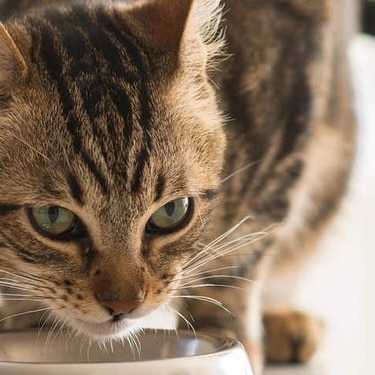
Discover what you can do to spot and support a sensitive cat stomach. See what routines and food you can implement to help your cat be happy and healthy.

Find out about how you can support your cat's digestion to boost overall health. Diet is key to a long and happy life for your cat, so discover what you can do.
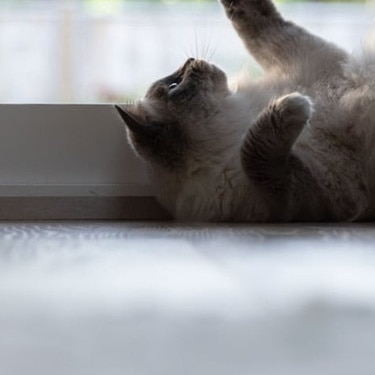
Feeding time can be a wonderful bonding opportunity for you and your cat. Find out how to make the most of it and create a healthy habit with HIll's Pet UK.
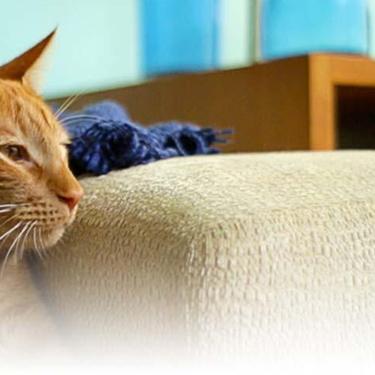
Find the right Hill

Put your cat on a diet without them knowing
Our low calorie formula helps you control your cat's weight. It's packed with high-quality protein for building lean muscles, and made with purposeful ingredients for a flavourful, nutritious meal. Clinically proven antioxidants, Vitamin C+E, help promote a healthy immune system.
Put your cat on a diet without them knowing
Our low calorie formula helps you control your cat's weight. It's packed with high-quality protein for building lean muscles, and made with purposeful ingredients for a flavourful, nutritious meal. Clinically proven antioxidants, Vitamin C+E, help promote a healthy immune system.

